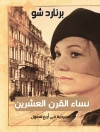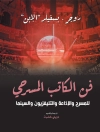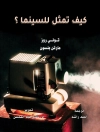Quo vadis Europa? And where are the independent performing arts heading? Driven by values such as tolerance and openness, what power do the independent performing arts possess in a climate dominated by Euroscepticism? Are those values essential for Europe and if so, how can they be atrengthened? These were the questions focussed on at the IETM’s Plenary Meeting Munich (International Network for Contemporary Performing Arts) which is documented in this bi-lingual book. Central to the reflexions around the role of the performing arts in Europe were the topics ‘Post-colonialism’, ‘Diversity’ and ‘Visions for the Future’. Including contributions by Ulrike Guérot, Robert Menasse and Kathrin Röggla.
Quo vadis Europa? Wohin die freie Szene? Welche Tragkraft haben in einem von Euroskepsis geprägten Klima die unabhängigen darstellenden Künste, deren Arbeitsbegriff sich auf Werte wie Toleranz und Offenheit stützt? Sind diese Werte konstituierend für Europa, wie können sie gestärkt werden? Diese Fragen standen im Mittelpunkt des Treffens des International Network for Contemporary Performing Arts (IETM) in München, das in diesem zweisprachigen Buch dokumentiert wird. Im Zentrum der Reflexionen rund um die Rolle der darstellenden Kunst in Europa stehen Postkolonialismus, Diversität sowie Visionen für die Zukunft. Mit Beiträgen von Ulrike Guérot, Robert Menasse und Kathrin Röggla.
Tabela de Conteúdo
Christopher Balme
Introduction / Einleitung 6 / 12
Axel Tangerding
Beyond the Net 18 / 22
INTERVENTIONS / INTERVENTIONEN
Ulrike Guérot
The European Balcony Project / 28
Constructing the European Republic
Robert Menasse und Kathrin Röggla im Gespräch
mit Axel Tangerding / 33
Kathrin Röggla
Listen to Europe / Europa hören 39 / 44
ARTICLES / ARTIKEL
Miriam Bornhak
On Stages, Balconies and Politics: The Theatre as a
European Mouthpiece in the European Balcony Project / 50
Von Bühnen, Balkonen und Politik. Das Theater als
europapolitisches Sprachrohr im European Balcony Project / 56
Elisabeth Luft
Res Publica Europa: A Political Utopia as a Challenge
for the Independent Performing Arts? / 61
Res Publica Europa. Eine politische Utopie als Herausforderung für die freien darstellenden Künste? / 66
Lisa Haselbauer
Struck Blind: On Rediscovering Political Sensuality / 71
Geschlagen mit Blindheit
Zur Wiederentdeckung des politisch Sinnlichen / 76
Klaudia Laś
Faster, Higher, Stronger: Performance Pressure in the Independent Performing Arts / 81
Schneller, höher, stärker. Über den Leistungsdruck in den freien darstellenden Künsten / 86
Marion Geiger
Fortress Europe or Network of Cultures?
Why Europe Can Learn from Hip-Hop / 90
Festung Europa oder Netzwerk der Kulturen?
Warum Europa von Hip Hop lernen kann / 96
Ursula Maier
Postcolonial Minefields: The Example of Shit Island / 102
Postkoloniale Minenfelder am Beispiel von Shit Island / 109
Luisa Reisinger
About Shifts in the Perception of Disabled Bodies on Stage A Call for Change / 114
Über Wahrnehmungsverschiebungen beeinträchtigter Körper auf der Bühne. Ein Plädoyer zur Veränderung / 121
Claus Michael Six
Field Research as Performance – Performance as Field Research
An Interview with Flinn Works, Junges Ensemble Stuttgart (JES) and the Citizen.KANE.Kollektiv (CKK) / 128
Feldforschung als Performance – Performance als Feldforschung
Ein Interview mit Flinn Works, dem Jungen Ensemble Stuttgart (JES) und dem Citizen.KANE.Kollektiv (CKK) / 135
TALKS OF THE DAY
Fabio Tolledi and Nora Amin
Eurocentrism is the new Colonial / 142
Liwaa Yazji and Ramzi Maqdisi
They Call me an Artist / 146
Authors / Autorinnen und Autoren / 150
Sobre o autor
Christopher Balme
Professor für Theaterwissenschaft an der Ludwig-Maximilians-Universität München und Präsident der ‘International Federation for Theatre Research’. Arbeitsschwerpunkte und Veröffentlichungen zum interkulturellen und postkolonialen Theater sowie zur Propädeutik des Fachs: Decolonizing the Stage: Theatrical syncretism and postcolonial drama (Clarendon Press 1999); Einführung in die Theaterwissenschaft (5. Auflage, Erich Schmidt Verlag 2014); Pacific Performances: Theatricality and Cross-Cultural Encounter in the South Seas (Palgrave Macmillan 2007); Cambridge Introduction to Theatre Studies (Cambridge University Press 2008); The theatrical public sphere (Cambridge University Press 2014). Er leitet das DFG-Forschungsprojekt ‘Global Theatre Histories’.
holds the chair in theatre studies at LMU Munich. His publications include Decolonizing the Stage: Theatrical syncretism and postcolonial drama, (Clarendon Press 1999); Pacific Performances: Theatricality and Cross-Cultural Encounter in the South Seas (Palgrave Macmillan, 2007); Cambridge Introduction to Theatre Studies (CUP 2008); The theatrical public sphere (CUP 2014). He is principal investigator of the ERC Advanced Grant ‘Developing Theatre: Building Expert Networks for Theatre in Emerging Countries after 1945’.
Axel Tangerding
gründete nach beruflichen Anfängen als Architekt 1980 das Meta Theater in München, wo er als künstlerischer Leiter tätig ist. Dabei spielt der Austausch mit außereuropäischen Künstlern eine bedeutende Rolle. Unter seiner Regie entstand das mit dem Music Theatre NOW Award ausgezeichnete Stück Musicophilia nach Oliver Sacks’ Bestseller über Gehirn und Musik, das international Beachtung fand, sowohl in Europa als auch in China, Finnland, der Ukraine, Kanada und den USA. Für sein interkulturelles, international künstlerisches Engagement und seine Verdienste um kulturelle Vermittlung erhielt er zahlreiche Auszeichnungen. Darunter 2002 das Bundesverdienstkreuz, 2012 den Tassilo Kulturpreis der Süddeutschen Zeitung und 2016 die Wilhelm Hausenstein Ehrung der Bayerischen Akademie der Schönen Künste in der Sektion Theater.
After starting his career as an architect, he founded the Meta Theater in Munich in 1980, where he works as artistic director. Here, the exchange with non-European artists plays an important role. Under his direction, the Music Theater NOW Award-winning piece Musicophilia, based on Oliver Sack’s bestselling brain and music, has garnered international acclaim, both in Europe and China, Finland, Ukraine, Canada and the United States. He has received numerous awards for his intercultural, international artistic commitment and his contribution to cultural mediation. Among them, 2002 the Order of Merit of the Federal Republic of Germany, 2012, the Tassilo Culture Prize of the Süddeutsche Zeitung and 2016, the Wilhelm Hausenstein award of the Bavarian Academy of Fine Arts in the section theatre.












